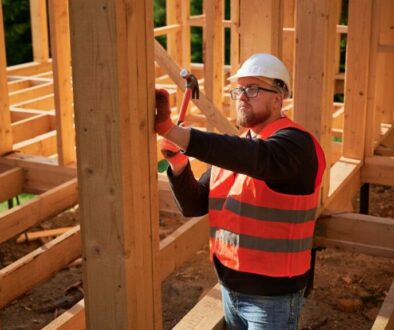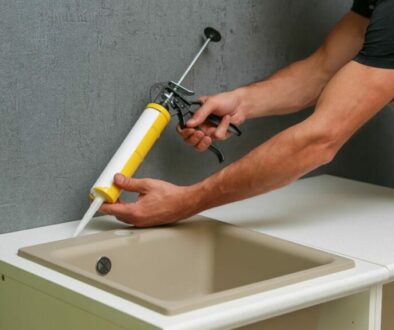What Are Irrigation Installation Skills?
Irrigation installation skills are the knowledge and abilities necessary to install and maintain irrigation systems. Irrigation systems are used in agriculture, landscaping, and other industries to provide water to crops, gardens, lawns, and other outdoor areas. With the increasing demand for efficient and effective irrigation systems, it is essential to develop and improve irrigation installation skills.
Irrigation Installation Skills Examples
Irrigation installation skills are highly valuable and sought after in the agricultural and landscaping industries. A skilled irrigation installer can make a significant difference in the growth and health of plants, as well as conserve water resources.
One of the most crucial skills for an irrigation installer is a deep understanding of irrigation systems and designs. This knowledge includes knowing the different types of irrigation systems, such as drip irrigation, sprinkler irrigation, and flood irrigation. It also involves understanding the various components of an irrigation system, such as pipes, valves, and controllers.
Another essential skill for an irrigation installer is a thorough understanding of soil types and the water requirements of different plants. This knowledge helps ensure that the irrigation system delivers the right amount of water to the plants, preventing over or under-watering. It also helps prevent soil erosion and nutrient leaching.
Installation and maintenance of irrigation components such as pipes, sprinklers, and valves are also critical skills for an irrigation installer. Proper installation ensures that the irrigation system functions efficiently and effectively. Regular maintenance helps prevent breakdowns and extends the life of the irrigation system.
Being able to read and interpret irrigation system schematics and blueprints is another essential skill for an irrigation installer. This knowledge helps ensure that the irrigation system is installed correctly and functions as intended.Knowledge of water conservation techniques and regulations is also crucial for an irrigation installer. With water resources becoming scarcer, it is essential to use water efficiently and responsibly. An irrigation installer must know how to design and install systems that conserve water while still providing adequate irrigation.
Finally, the ability to troubleshoot and repair irrigation systems is a valuable skill for an irrigation installer. This skill helps ensure that the irrigation system functions correctly and prevents plant damage and water waste.
Irrigation installation skills are essential for anyone looking to work in the agricultural or landscaping industries. These skills can be gained through training programs, apprenticeships, or on-the-job experiences. It is also essential to continue learning and enhancing these skills, especially since the irrigation industry is in a constant state of evolution.
How Do You Improve Irrigation Installation Skills?
Irrigation installation is a critical aspect of agriculture and landscaping, and it requires a unique set of skills and knowledge to execute correctly. The demand for irrigation professionals has been on the rise, and to stand out in the job market, it is essential to improve your irrigation installation skills continually.
There are various ways to improve your irrigation installation skills, including:
- Training programs: Joining a training program is an excellent way to learn both the theoretical and practical skills needed to install and maintain irrigation systems. Several training programs offer certifications that can boost your credibility in the job market. These programs cover various topics such as irrigation design, installation, maintenance, and troubleshooting.
- On-the-job training: On-the-job training is a practical way of learning irrigation installation skills, where one can gain hands-on experience while working alongside experienced irrigation professionals. It is an excellent way to learn the tricks of the trade and understand the challenges that come with installing irrigation systems. This type of training can also help you build a network of contacts in the industry.
- Attending industry conferences and seminars: Attending seminars and conferences is an excellent way to stay updated with the latest irrigation technologies, techniques, and regulations. These events provide an opportunity to learn from industry experts, network with other irrigation professionals, and stay up-to-date with the latest trends and technologies. You can also participate in workshops and demonstrations to learn new skills.
- Continuing education: Enrolling in courses focused on irrigation installation technologies and techniques can further one’s knowledge and skills, leading to better job performance and career growth. These courses cover topics such as irrigation system design, installation, maintenance, and repair. They are available at community colleges, universities, and online platforms.
- Networking: Building relationships with other irrigation professionals can enhance one’s knowledge and provide insights into irrigation industry trends and technologies. Joining industry associations and attending networking events can help you build a network of contacts in the industry. You can also participate in online forums and discussions to connect with other irrigation professionals.
It is crucial to continue learning and improving irrigation installation skills to remain competitive in the job market and stay up-to-date with irrigation technologies and regulations. By investing in your skills and knowledge, you can increase your chances of success in the irrigation industry and contribute to sustainable agriculture and landscaping practices.
Why Do Employers Look For Irrigation Installation Skills?
Employers usually look for irrigation installation skills due to the increasing demand for efficient and effective irrigation systems. A well-maintained irrigation system can help improve crop yields, conserve water resources, and enhance the beauty of landscapes. However, there is more to irrigation installation than just digging trenches and laying pipes.
Firstly, irrigation professionals must have a deep understanding of the local climate and soil conditions to design and install a system that works optimally. They must also be knowledgeable about the different types of irrigation systems available, such as drip irrigation, sprinkler systems, and flood irrigation, and be able to recommend the best option for a particular project.
Secondly, irrigation systems require regular maintenance to function correctly, creating a demand for skilled professionals willing to perform installation, maintenance, and repair services. Maintenance tasks include checking for leaks, adjusting sprinkler heads, and ensuring that the system is working efficiently.
Thirdly, irrigation professionals must keep up-to-date with the latest technologies and techniques in the industry. For example, many irrigation systems now use smart technology that can automatically adjust watering schedules based on weather conditions and soil moisture levels. Professionals must be able to install and maintain these systems to provide the best service to their clients.
Lastly, different industries require different irrigation systems and techniques. For example, the irrigation needs of a golf course will be vastly different from those of a residential garden. Therefore, irrigation professionals must have the flexibility and expertise to adapt to different project requirements.
Irrigation installation skills are essential for a successful career in the irrigation industry. By keeping up-to-date with technologies, techniques, and regulations, irrigation professionals can improve their skills and stay competitive in the job market while delivering high-quality services to clients. Whether it’s for agricultural, residential, or commercial projects, the demand for irrigation installation skills is only set to increase as the need for water conservation technologies and practices continues to grow.




